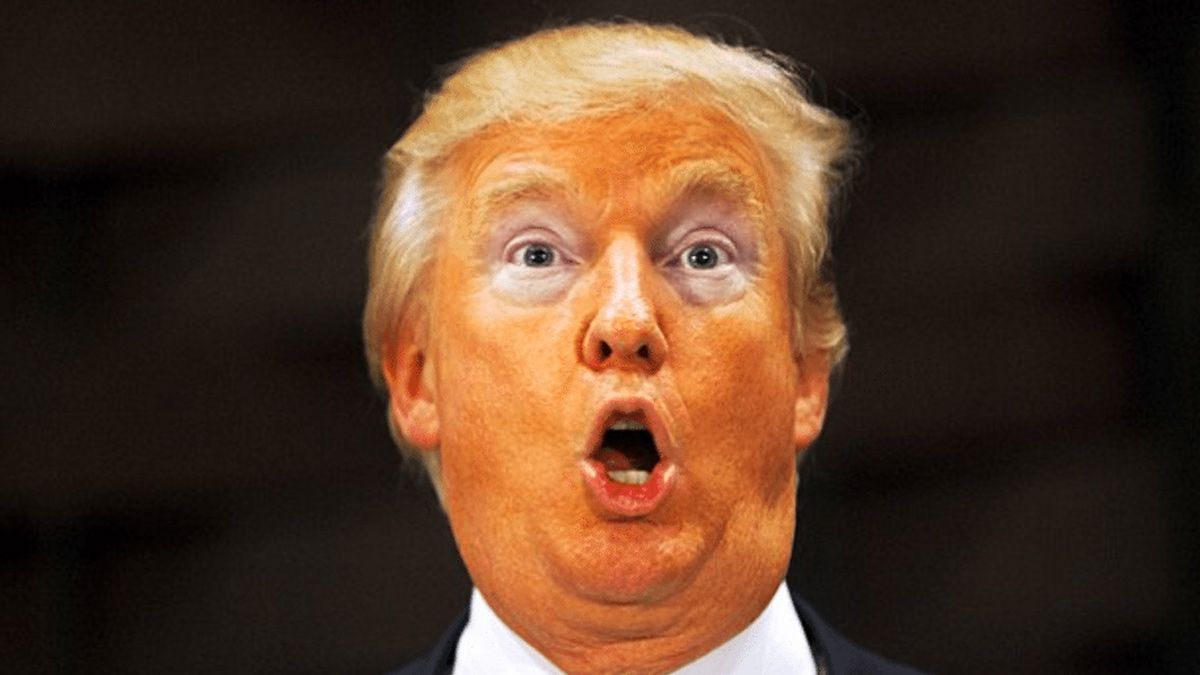 Governors
and mayors across the United States are closing schools and bars and
restaurants and gyms and banning large events. Sports leagues have shut down
their own seasons.
Governors
and mayors across the United States are closing schools and bars and
restaurants and gyms and banning large events. Sports leagues have shut down
their own seasons. The CDC is recommending no gatherings over 10 people for the next eight weeks. And it may all be too little too late to stop coronavirus from sweeping through the country, overwhelming hospitals, and leaving more people dead than most of us can imagine.
How
did we get here? A pandemic is a pandemic, of course, but some countries have
managed to flatten the curve and keep the worst from happening. But in the
U.S., we’ve had Donald Trump persistently downplaying the risk—and refusing to
take the steps needed to protect us.
The New York Times’ David Leonhardt shows us the depths of Trump’s refusal to admit that there was a problem by reviewing all of Trump’s public statements on COVID-19 from the beginning.
From “we have it totally under control” on January 22 to virtually inventing a Google testing website in mid-March, it’s a staggering failure of leadership produced by wishful thinking and concern for public image above public health.
The New York Times’ David Leonhardt shows us the depths of Trump’s refusal to admit that there was a problem by reviewing all of Trump’s public statements on COVID-19 from the beginning.
From “we have it totally under control” on January 22 to virtually inventing a Google testing website in mid-March, it’s a staggering failure of leadership produced by wishful thinking and concern for public image above public health.
January
22 was Trump’s first public comment on coronavirus, when, asked if there were
concerns about a pandemic (concerns that have been fully realized), he
answered, “No. Not at all. And we have it totally under control. It’s one
person coming in from China, and we have it under control. It’s going to be
just fine.”
He
didn’t stop there.
January
28: Trump retweeted One America News claiming Johnson & Johnson was
creating a vaccine.
January
30: “We have it very well under control. We have very little problem in this
country at this moment—five. And those people are all recuperating
successfully.”
January
31, Trump limited air travel by foreigners who had recently traveled to China.
He’s endlessly bragged about that move, but he didn’t accompany it with any
other serious measures to contain COVID-19 in the U.S.
February
2: “Well, we pretty much shut it down coming in from China,” Trump claims in an
interview with Sean Hannity.
February
10, with the U.S. drastically behind on testing: “Looks like by April, you
know, in theory, when it gets a little warmer, it miraculously goes away.”
February
19: “I think the numbers are going to get progressively better as we go along.”
February
23: “We have [coronavirus] very much under control in this country.” And
“We had 12 [people with the disease], at one point. And now they’ve
gotten very much better. Many of them are fully recovered.”
A
few days later, Trump seemingly started to realize there was a problem he
couldn’t handle by simply denying it existed. So he started lashing out at
others.
On February 25 he was ranting about “Cryin’ Chuck Schumer.”
The media was “panicking markets” by reporting on coronavirus, he tweeted on February 26. At a February 28 rally, he blamed “The Democrat policy of open borders.”
On February 25 he was ranting about “Cryin’ Chuck Schumer.”
The media was “panicking markets” by reporting on coronavirus, he tweeted on February 26. At a February 28 rally, he blamed “The Democrat policy of open borders.”
But
that doesn’t mean he stopped also pretending everything was just fine. In the
same period, he claimed “we’re going down, not up.
We’re going very substantially down, not up” and “It’s going to disappear. One day—it’s
like a miracle—it will disappear.”
On February 29, Trump claimed a vaccine would be
available “very quickly” and that “my administration has taken the most
aggressive action in modern history to confront the spread of this disease.”
False and false.
March
2: Trump discovers that the flu also kills people, and tries to change the
subject to the flu.
March 4: Trump tells Hannity that the fatality
rate is lower than the World Health Organization’s latest number.
March 7: Asked if he’s concerned that the virus
is getting closer to the White House, Trump responds “No, I’m not concerned at
all. No, I’m not. No, we’ve done a great job.” This remark is made at
Mar-a-Lago, before dinner with Brazilian President Jair Bolsonaro. Three people at Mar-a-Lago that night have
tested positive for coronavirus.
The
amount of denial and deception and misinformation Trump has produced about
coronavirus, even as the disease spreads and its threat increases, has been a
serious danger to the people of the United States.
And with the number of people infected rising daily—not that we know how high the number is, thanks to a lack of testing due to Trump administration mismanagement—we’re just now starting to learn how high a price we’ll all pay for his failure of leadership.
And with the number of people infected rising daily—not that we know how high the number is, thanks to a lack of testing due to Trump administration mismanagement—we’re just now starting to learn how high a price we’ll all pay for his failure of leadership.